Boston Terrier Dog Breed
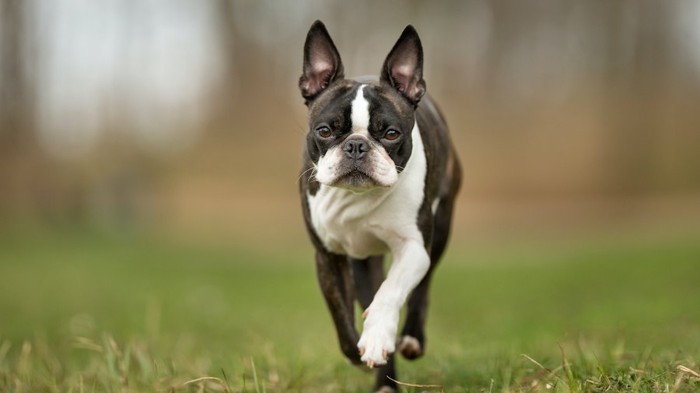
| Aspect | Details |
|---|---|
| Origin | United States |
| Birth Era | Late 19th century |
| Crossbreed | No, purebred |
| Temperament | Friendly, intelligent, lively |
| Physique | Small to medium, 10-25 pounds, compact |
| Coat | Short, smooth, tuxedo-like coat |
| Lifespan | 11-13 years |
The Boston Terrier, originating in the United States in the late 19th century, was bred from a cross between Bulldogs and Terriers. This breed combines a muscular and sturdy build with an active personality, all within a small to medium size.
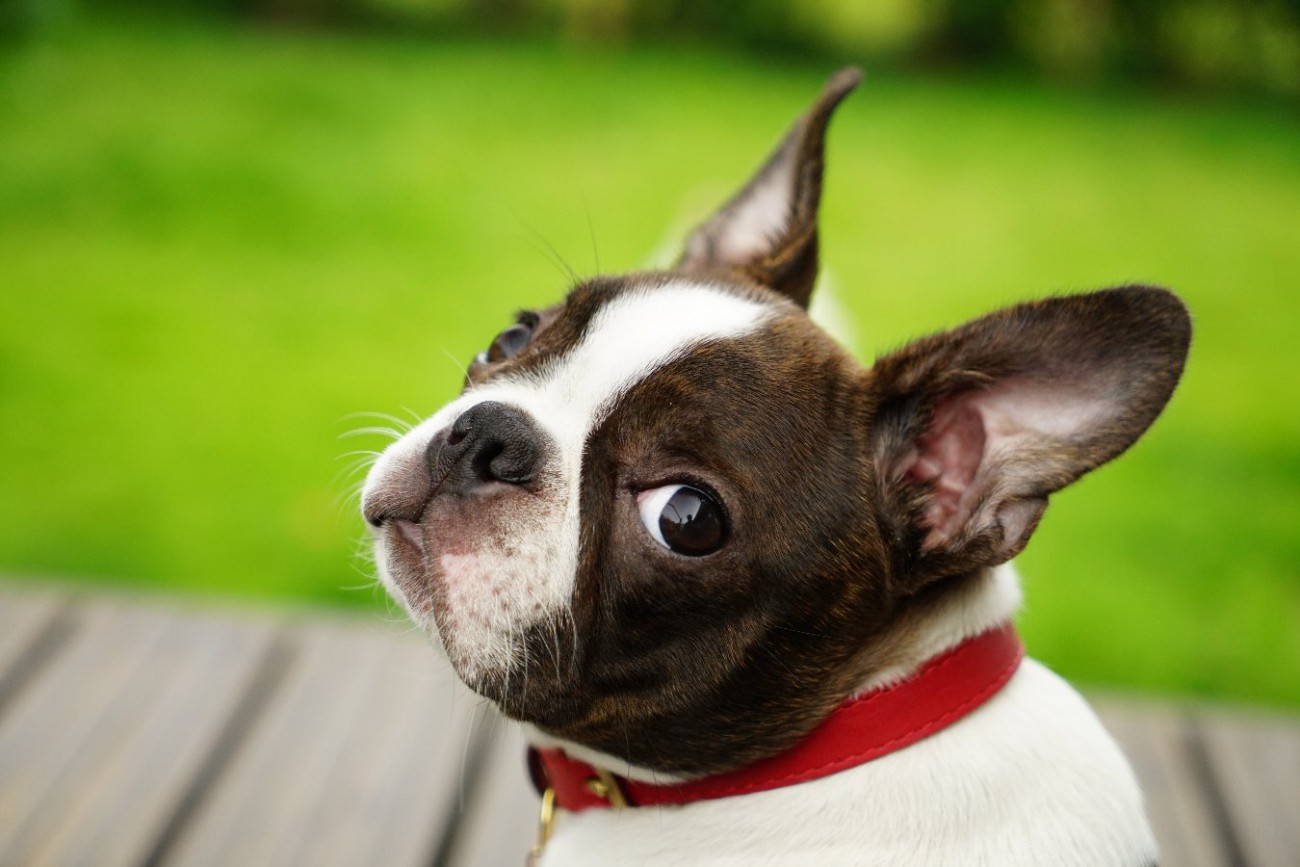
In Japan, their distinctive facial features, large round eyes, and erect ears enhance their endearing appearance. Boston Terriers, known for their friendly and sociable nature, are highly popular as pets in Japanese households. Their high intelligence and ease of training make them suitable for many homes in Japan.
The Boston Terrier, with its unique looks and affectionate character, has long been cherished by dog enthusiasts in Japan.
Coat Color
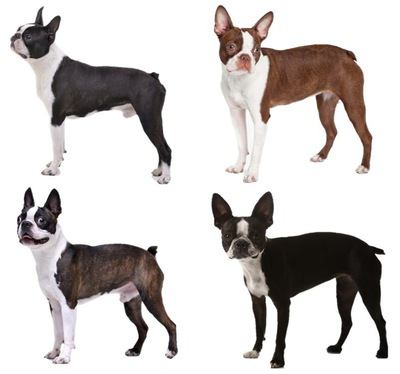
In Japan, Boston Terrier owners particularly focus on the breed’s distinctive coat colors. In addition to the most common black & white, brindle & white, and seal (a deep brownish-black) & white colors are also popular. These coat colors contribute to the Boston Terrier’s unique ‘tuxedo’ appearance, which, combined with their characteristic facial features, creates a distinct charm.
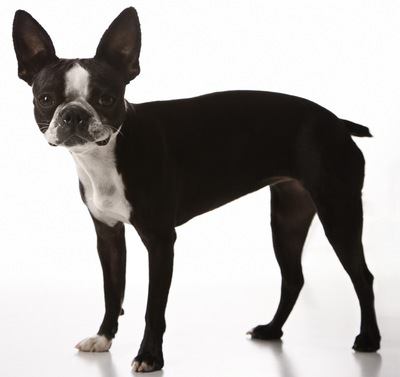
In Japan, these coat colors are seen as important elements that enhance the allure of Boston Terriers, emphasizing their individuality and adding to their appeal.
Coat Type
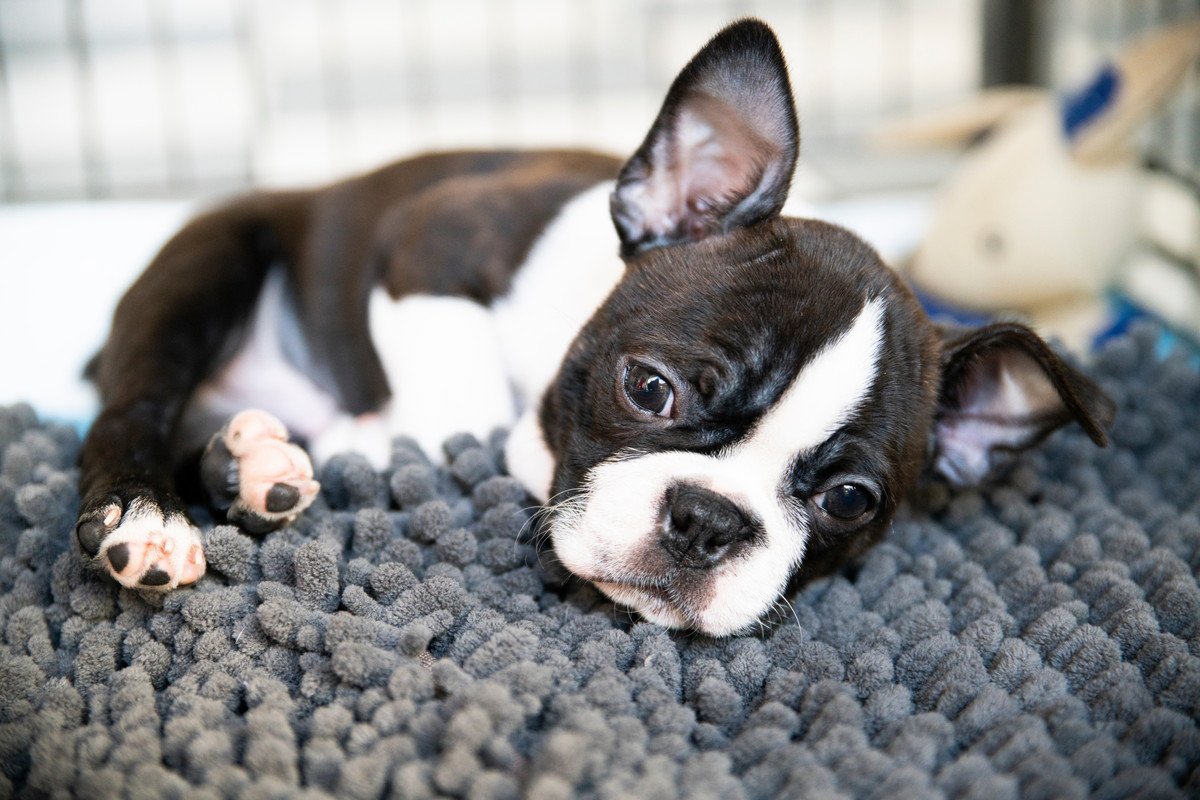
In Japan, there is a high awareness of the care needed for the coat of Boston Terriers, particularly valuing their beautiful smooth coat and double coat characteristics. During seasonal changes, the undercoat of Boston Terriers sheds profusely, making care during these periods especially important.
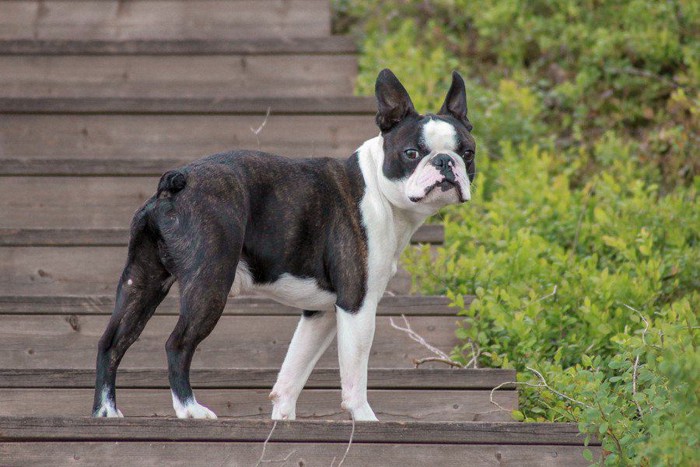
Measures for managing indoor shedding, such as regular brushing and shampooing, are essential. This routine not only keeps the dog’s skin clean but also manages shedding, forming an important part of the daily care for Boston Terriers by their Japanese owners.
Size
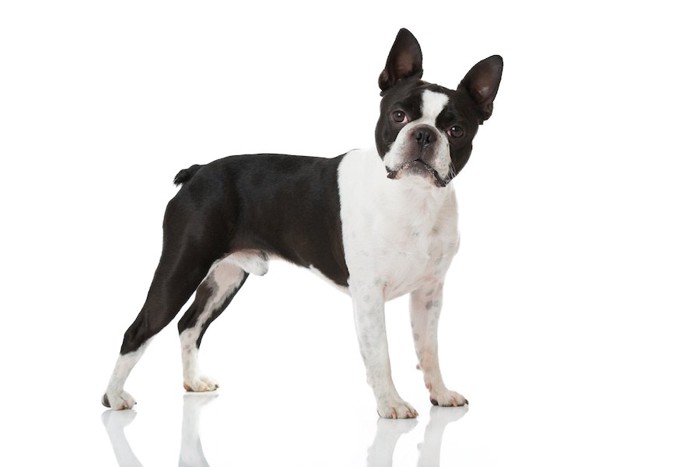
The Boston Terrier, as an adult, stands approximately 11 to 15 inches tall, with a nearly equal body length and a characteristic muscular, square-shaped form.
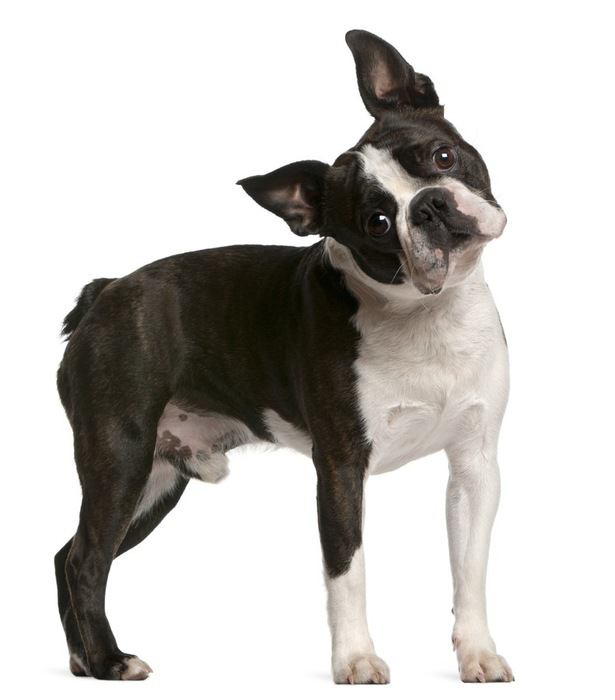
In Japan, it’s noted that the average height difference between male and female is only about 0.8 inches, a minimal disparity compared to other breeds. Although not based on scientific data, it’s commonly believed among Japanese Boston Terrier enthusiasts that they reach half their adult size around 14 to 16 weeks of age, serving as a rough guideline for their growth.
Weight
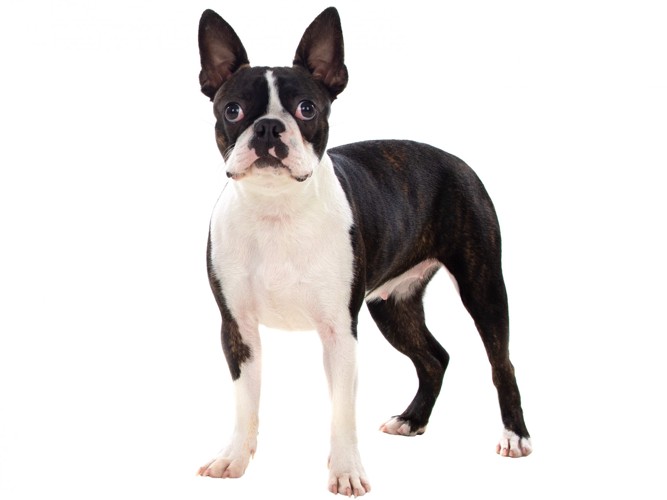
In Japan, the average weight of adult Boston Terriers typically ranges from 13.2 to 25 pounds. According to the Japan Kennel Club (JKC), they are classified into three sizes: ‘Light’ (under 15 pounds), ‘Medium’ (15 to under 19.8 pounds), and ‘Heavy’ (19.8 to 25 pounds).
Males generally weigh between 19.8 and 24.2 pounds, while females weigh between 15.4 and 19.8 pounds. At birth, they weigh around 7 ounces and can increase by about 10 to 15 times within two months. Growth continues, reaching about 2 to 5 times their birth weight by 10 to 14 months.
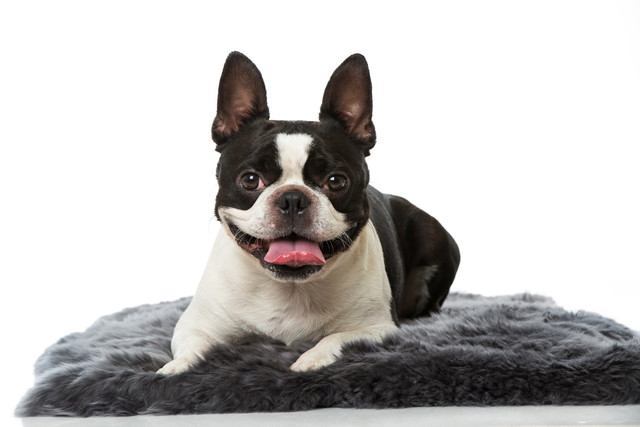
Weighing over 26.4 pounds is rare, and such a weight may indicate obesity, warranting consultation with a veterinarian. In Japan, proper weight management, considering individual differences, is highly emphasized.
Lifespan
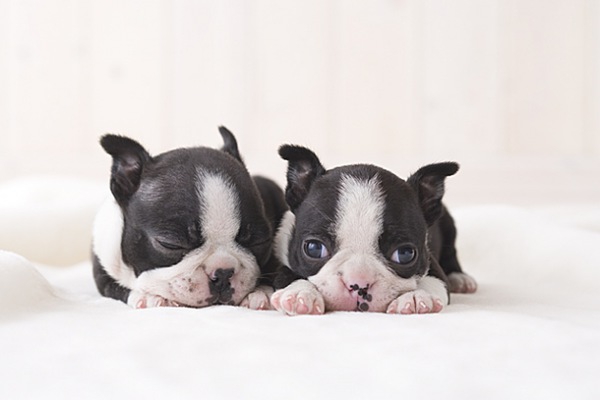
The Boston Terrier’s average lifespan is reported to be between 11 and 15 years, which is not significantly different from the average lifespan of small dogs in Japan, generally 12 to 15 years. Although not officially recorded, there have been instances in Japan of Boston Terriers living up to 20 years.
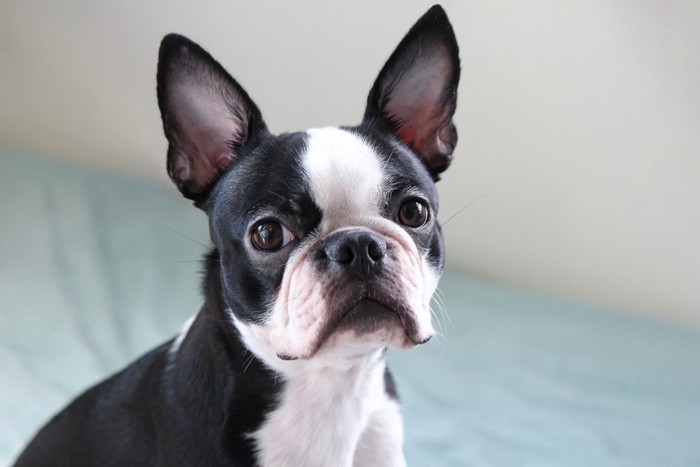
With advancements in pet healthcare and increased access to information for pet owners, the lifespan of pets, including Boston Terriers, tends to be extending in Japan. However, due to their susceptibility to respiratory issues as a brachycephalic breed, meticulous care by Japanese owners is essential for ensuring their longevity.
Trainavility
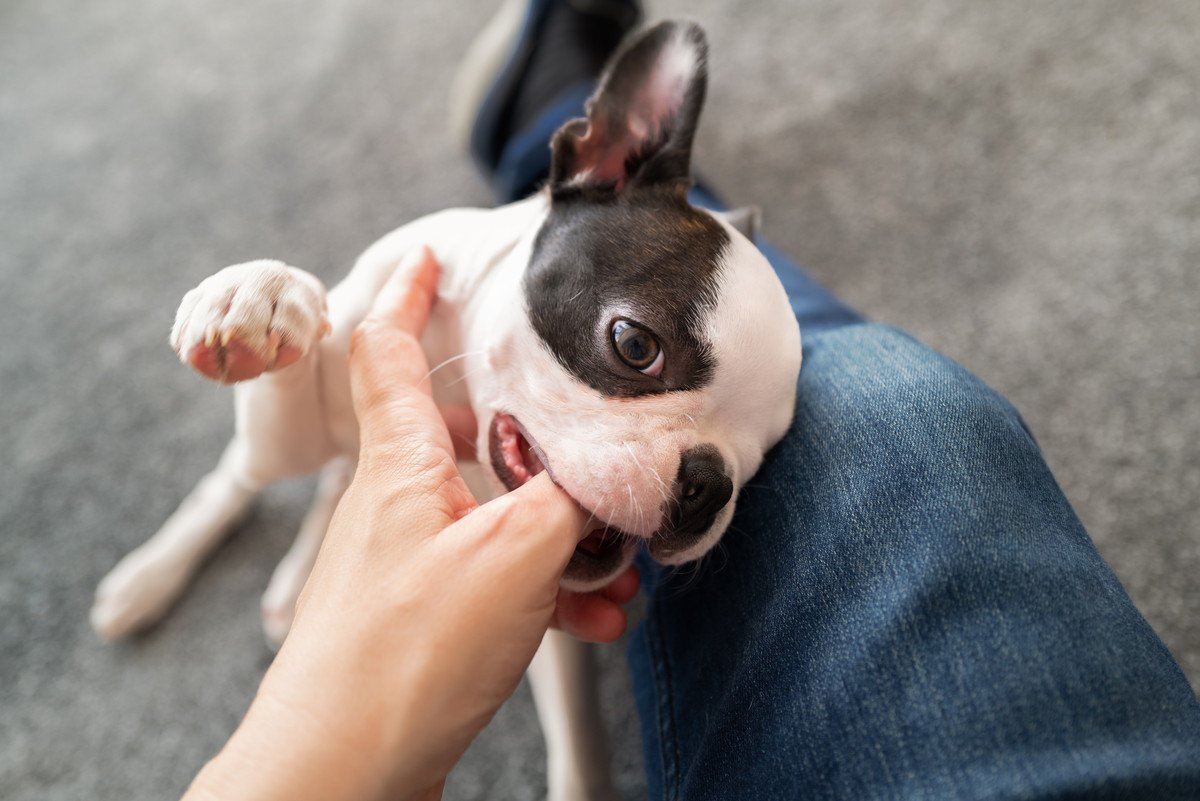
In Japan, training Boston Terriers is based on their high trainability and learning capacity. These sociable and friendly dogs respond excellently to positive reinforcement training methods, particularly when using treats or praise to enhance their motivation to learn.

However, due to their somewhat stubborn nature, a patient approach is necessary. Considering their short attention spans, short but frequent training sessions are recommended in Japan. Early socialization and basic obedience training are crucial for proper behavior control and fostering a good household companion.
With loving care and proper training, Boston Terriers become wonderful members of Japanese families.
Exercise
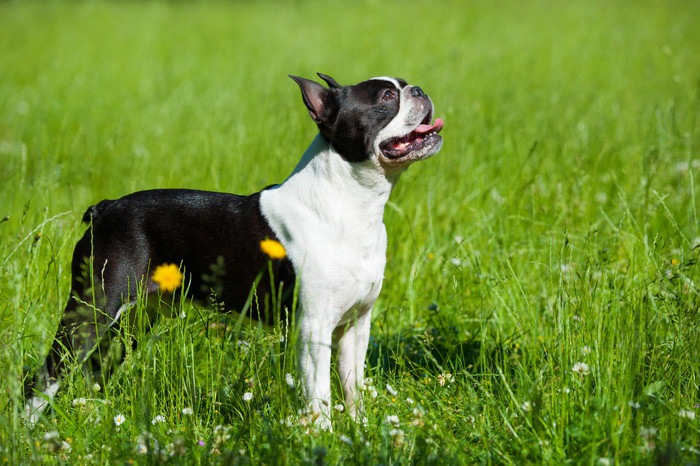
In Japan, the ideal time for a puppy’s first walk is about 2 weeks after completing the vaccination program, typically around 4 months old. As Boston Terriers are an energetic breed, appropriate daily exercise is crucial. They require two 30-minute walks per day, but due to their susceptibility to joint, bone, and respiratory issues, intense activities should be avoided.
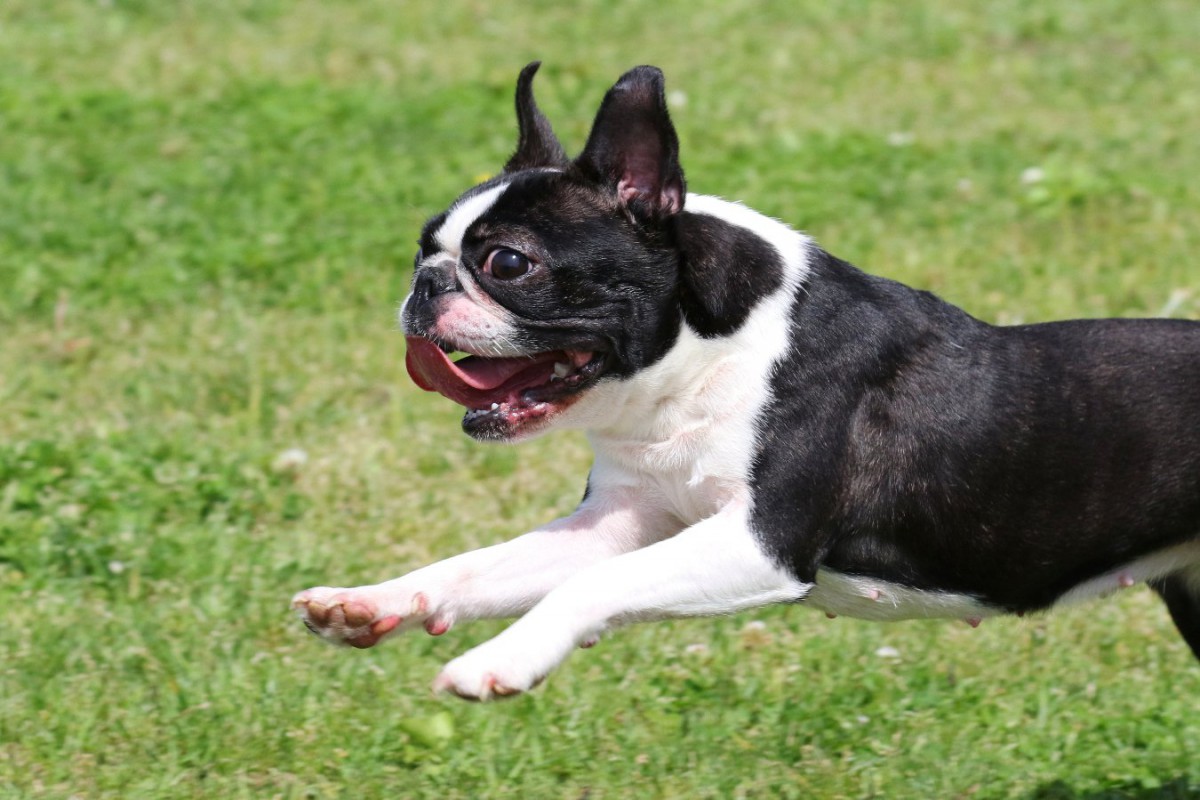
Interactions with other dogs and people, as well as time for free play and exploration, are important for socialization and fulfilling their curiosity. It’s essential to avoid overly strenuous activities and walking during hot times of the day, keeping in mind their difficulty with temperature regulation to ensure enjoyable and safe walks.
Feeding
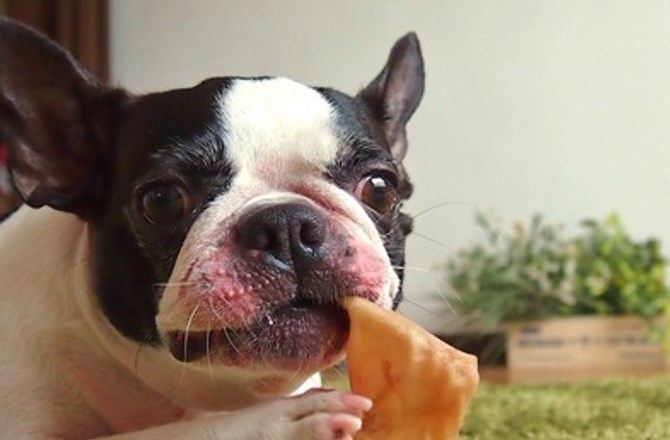
In Japan, managing the diet of a Boston Terrier is crucial for supporting their vibrant personality and health. As they are prone to becoming overweight despite being energetic, a well-balanced diet in appropriate quantities is essential.
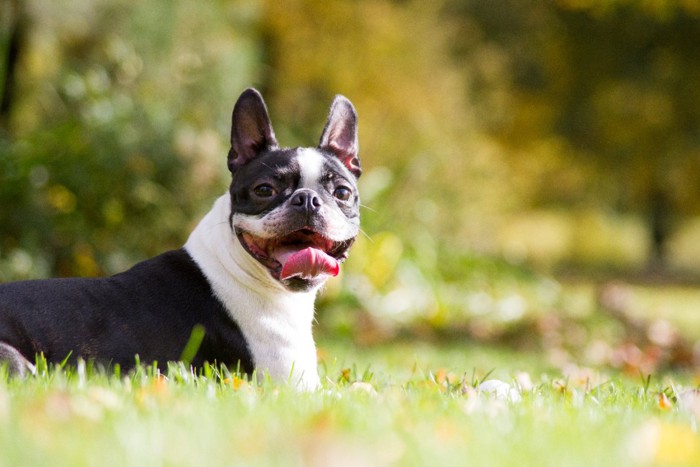
High-quality dog food, rich in proteins, fats, carbohydrates, vitamins, and minerals in a balanced proportion, is preferred by Japanese pet owners. Attention to food allergies is also important, necessitating careful selection of ingredients. Regular weight monitoring and adjusting the amount of food to prevent obesity or underweight conditions are vital for maintaining the health of Boston Terriers in Japan.
Temperament
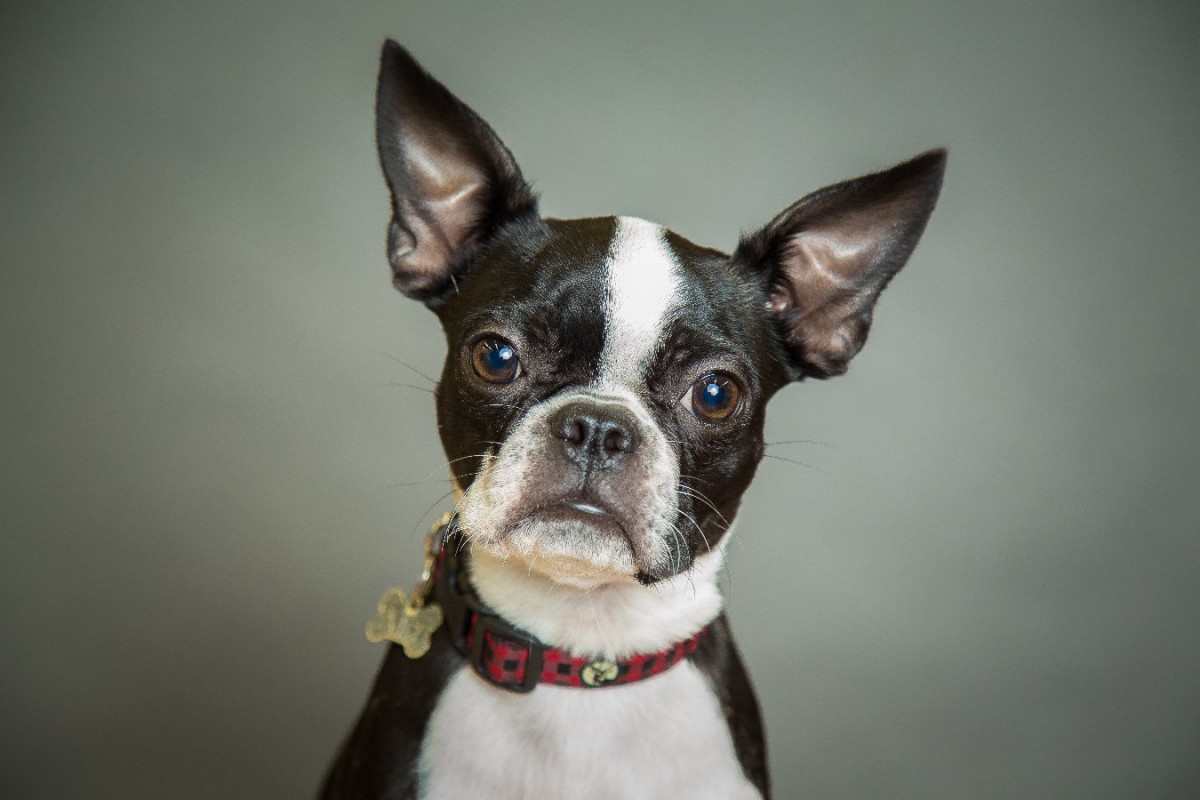
In Japan, the Boston Terrier is valued for its bright and energetic character. Known for their intelligence and ability to follow instructions, they are curious and active as puppies, gradually maturing into calm and gentle adults. However, due to their ancestry in fighting dogs, they can sometimes be aggressive towards other dogs. This trait can be mitigated with proper socialization from a young age.
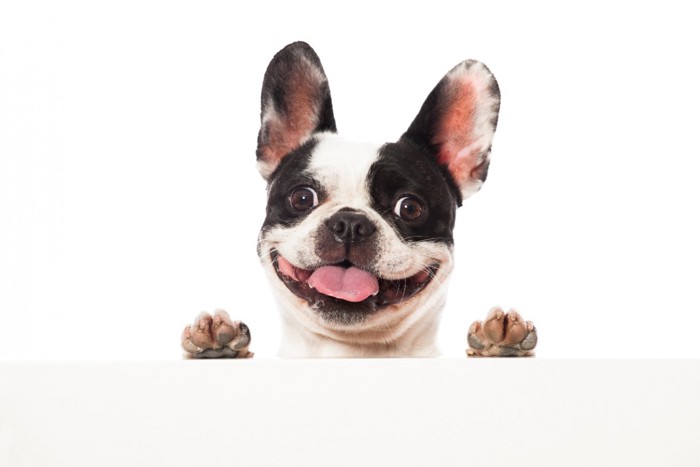
In Japan, while males may remain somewhat mischievous into adulthood, females often grow up to be comparatively quieter and are considered more suitable for beginners. Regardless of gender, Boston Terriers charm their families with endearing behaviors, making them beloved pets.
History
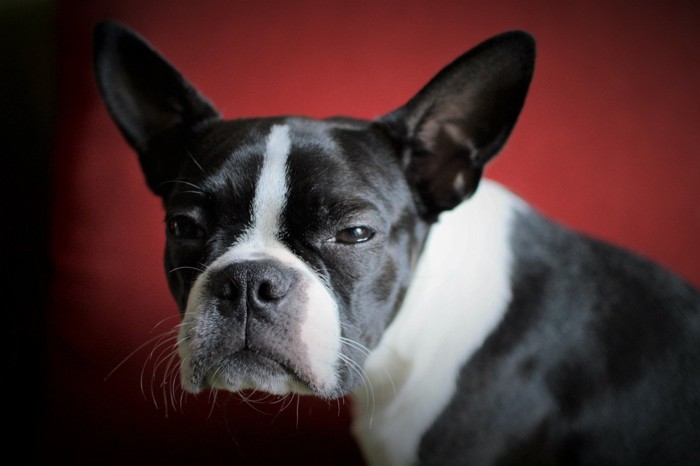
The Boston Terrier originated about 150 years ago in Boston, Massachusetts, USA. It began with the crossing of Bulldogs and white English Terriers. Initially bred as fighting dogs, they transitioned into companion dogs as fighting became prohibited.
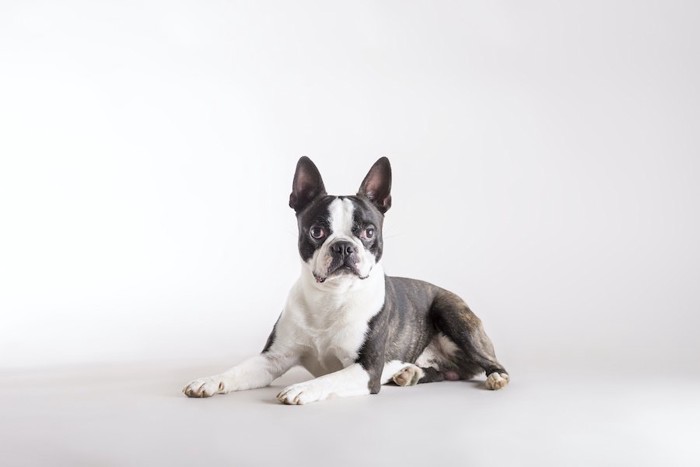
In Japan, the Boston Terrier is appreciated for its gentle nature as a pet, a transformation influenced by its history. Known affectionately as the “little American gentleman in a tuxedo,” it is also recognized as the mascot of Boston University.
In Japan, there is a tendency to respect its unique appearance and history while emphasizing its role as a family pet.
Grooming
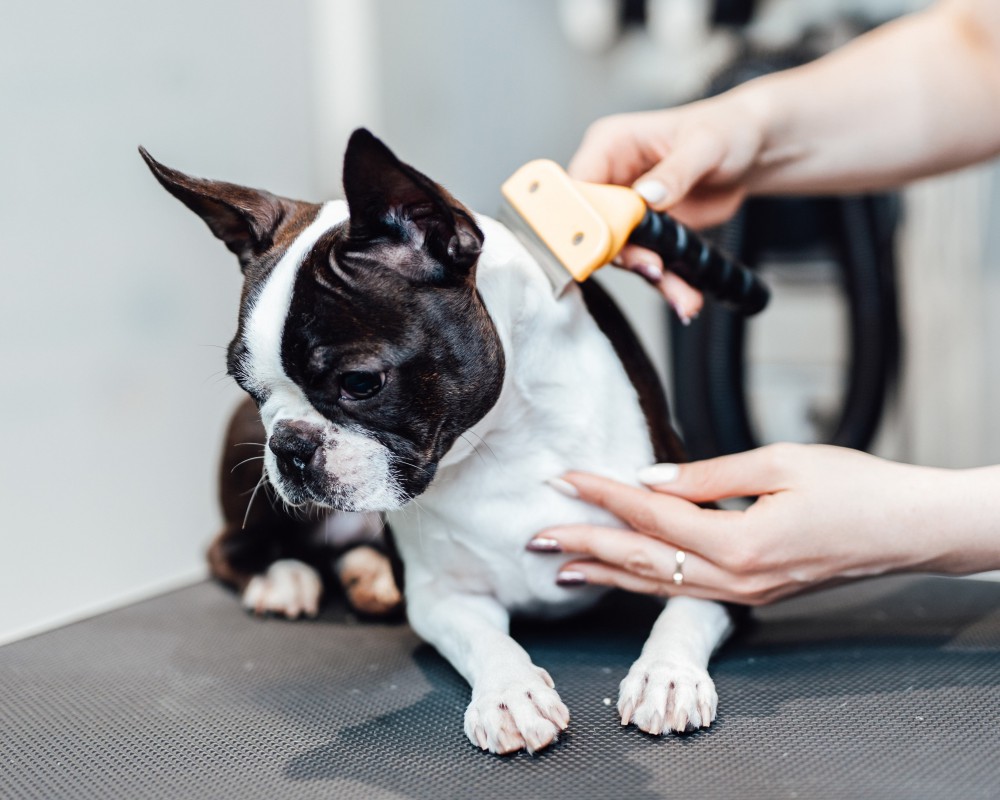
In Japan, special attention is given to the skin care of Boston Terriers. Due to their high sebum production and tendency to accumulate dirt in skin folds, they are prone to skin diseases and body odor, making it advisable to shampoo them once or twice a month.
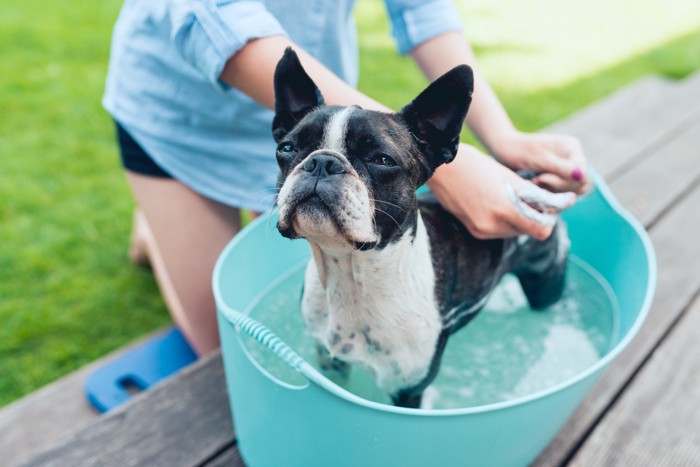
The wrinkles above their nose, a common area for dirt accumulation, should be gently wiped with a damp, soft cloth. However, frequent shampooing or vigorous wiping can damage their skin, so care must be taken. Boston Terriers have a double coat that sheds a lot, making daily brushing ideal. Using a rubber brush to gently remove loose hair and then a soft bristle brush for finishing can keep their coat healthy and beautiful.
Health
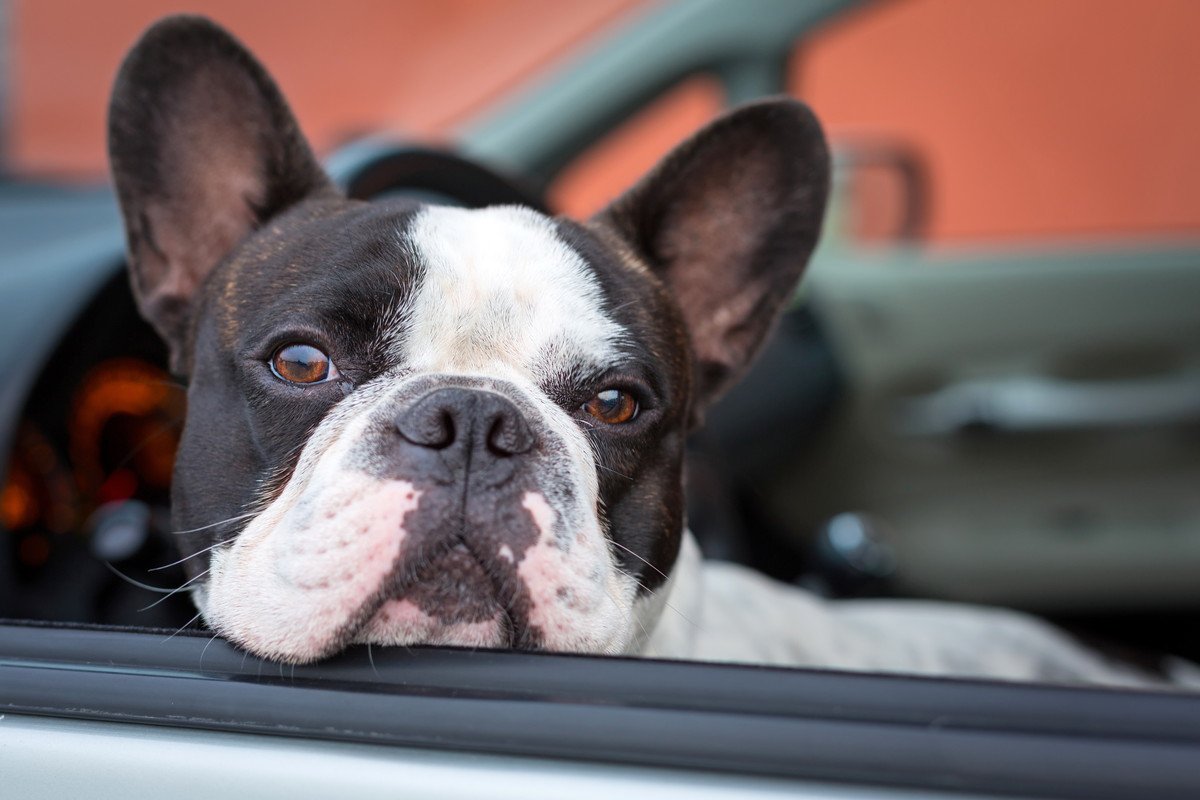
In Japan, owning a Boston Terrier requires not only an appreciation for their charming appearance and lovable character but also an awareness of certain health issues. Respiratory diseases, often due to their short nasal structure and unique facial configuration, can lead to breathing difficulties and excessive snoring.
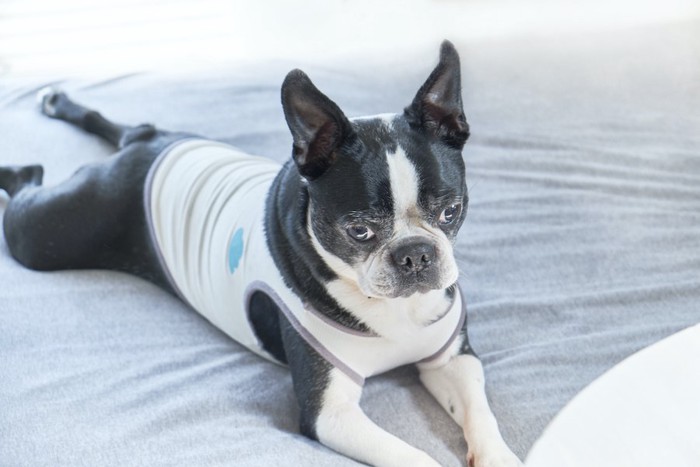
Their prominent eyes also make them susceptible to eye diseases. In Japan, particular attention is given to the eye health of Boston Terriers, with early detection and treatment of issues like dry eye and corneal ulcers being crucial. Additionally, joint problems, especially patellar luxation, are relatively common, necessitating regular veterinary check-ups to monitor these health concerns.
